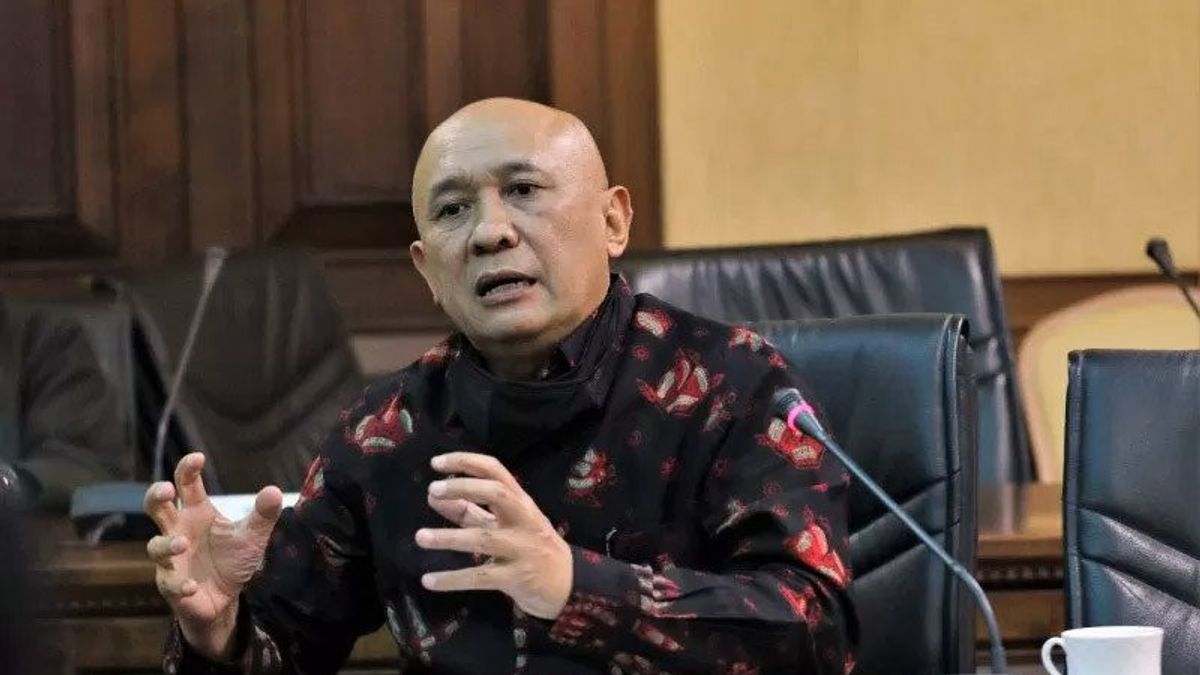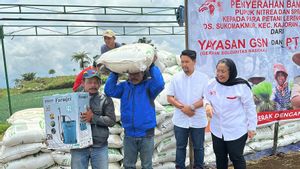JAKARTA - The Ministry of Cooperatives and SMEs (Kemenkop UKM) strengthens Micro, Small and Medium Enterprises (MSMEs) through the People's Business Credit (KUR) Supply Chain-Based Cluster program to support the realization of the people's economy.
Minister of Cooperatives and SMEs (MenKopUKM) Teten Masduki said that the distribution of KUR clusters based on supply chains is part of the government's breakthrough in increasing the role of the people's economy as a driver of national economic growth.
In this supply chain-based cluster, the financing distribution shifts from the trade sector to the production sector (farms, plantations, fisheries, livestock, and others).
"We were asked to find a breakthrough, so that the distribution of KUR is not just that. However, we also understand that banks do not want to rashly distribute KUR, which this year is targeted at IDR 460 trillion. The risk of non-performing loans (NPL) is usually the main consideration of banks," said Coordinating Minister for Human Development and Culture Teten Masduki in a written statement, Thursday, April 13.
"For this reason, President Joko Widodo (Jokowi) asked for a breakthrough, one of the breakthroughs, namely the acceleration of KUR clusters," he added.
Teten said, with KUR Clusters, NPL risk could be reduced. This also allows MSMEs to connect with off-takers of industrial supply chains, such as MSME benchmarks in Japan, South Korea (South Korea), and China, where MSME banking loans can reach more than 60 percent.
"The best is in South Korea, bank credit reaches 81 percent of bank credit for MSMEs. MSMEs there are connected to the supply chain of the semi-finished material industry, for industrial materials there is confidence in the market, this is what is being built," he said.
He emphasized that his party will continue to expand KUR clusters whose ceilings are quite large, reaching Rp. 500 million, so as to encourage the acceleration of distribution.
On the other hand, said Teten, his party proposed OJK so that banks not only use the conventional colllateral approach by using guarantees, which not all MSME assets can be used as collateral.
Meanwhile, KUR Cluster is a KUR financing scheme for business groups with a ceiling of up to IDR 500 million. KUR Clusters are usually intended for business groups that involve business partners for people's plantations, people's fisheries, people's livestock, the MSME industry, as well as business groups that produce local products, make up local raw materials, and other productive businesses.
"Through the KUR Cluster scheme based on supply chains with loan ceilings of up to a maximum of IDR 500 million per debtor, the government hopes to encourage KUR distribution in 2023 of IDR 450 trillion," he said.
Minister Teten emphasized that KUR Cluster is a credit given to MSMEs in groups that are integrated from upstream to downstream, so there is market certainty for MSME players because the offtaker or buyer is clear. Group management of MSMEs also makes it easier for banks to monitor.
"MSME actors who are members of the cluster have confidence in market access, so that credit potential is low. Currently, experiments are being carried out in several sectors as part of efforts to make it easier for MSMEs to access KUR as well as solutions for banks so that credit does not stall," he explained.
Furthermore, said Teten, to encourage the expansion of the distribution of KUR clusters, the Ministry of Cooperatives and SMEs has implemented several KUR Cluster implementation programs.
Through this scheme, the number of KUR distributed is greater and the MSME group is connected to business partners, such as PT Industri Jamu and Pharmacy Sido Muncul, PT Bintang Toedjoe, PT Cantika Puspa Pesona, PT Erajaya Group, and other Offtakers.
The Ministry of Cooperatives and SMEs also encourages the use of digital technology to accelerate the distribution of KUR, such as an analysis of credit eligibility so that banks do not need to worry about channeling loans.
To date, KUR Supply Chain-Based Clusters have realized IDR 538.7 billion to 50 clusters with 5,310 MSME cluster members by 9 KUR distributors. Teten hopes that financial institutions can expand the KUR cluster scheme.
In total, the expectations that will participate in the submission of KUR Supply Chain-Based Clusters amounted to Rp1.34 trillion, namely 117 clusters with 15,776 MSME members.
"For this reason, breakthrough efforts, including through the KUR Supply Chain-Based Cluster program, are important as part of efforts to increase access to lending for people's economic actors," added Teten.
The English, Chinese, Japanese, Arabic, and French versions are automatically generated by the AI. So there may still be inaccuracies in translating, please always see Indonesian as our main language. (system supported by DigitalSiber.id)












